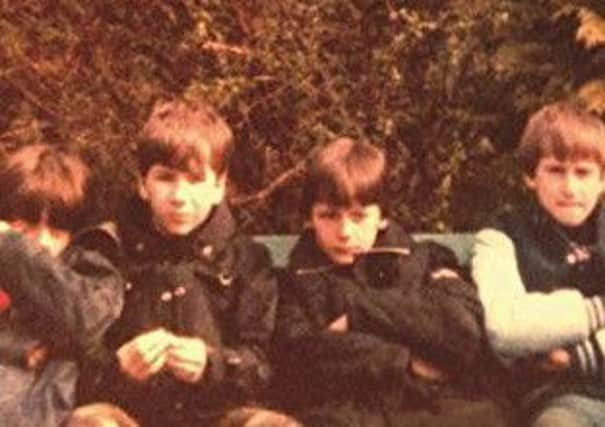Book review: This is Memorial Device, by David Keenan


Emily Gerard (1849-1905) was a travel writer fascinated by Transylvanian folklore who brought “nosferatu” into western use, inspiring Dracula author Bram Stoker. Walker Hamilton (1934-1969) really worked in the shadows, dying a few days after completing his second novel, just as strange, unclassifiable and neglected as the first. So, has David Keenan written the book that Airdrie and all of North Lanarkshire has been waiting for?
This is a post-punk rock odyssey, Memorial Device being one of the many bands kicking around between 1983 and 1985 – “what I call the glory years,” says Keenan’s narrator Ross Raymond. There’s Glass Sarcophagus, Steel Teeth, Fangboard, Slave Demographics. Oh, and another combo who dig up graves in Clarkston Parish Church intent on making trumpets out of thighbones. Raymond is the Lester Bangs of this scratchabout scene, scribbling for his fanzine, A Night Is a Morning That You Hasten to Light and believing that Memorial Device, the best of the bunch, will “go the whole way… vindicate Airdrie, valorise Coatbridge, memorialise Greengairs”.
Advertisement
Hide AdVindication seems needed. Keenan writes with scabrous wit about this milieu. “Hardly anyone ever leaves Airdrie,” reports Raymond. “Airdrie Savings Bank is the only surviving independent savings bank in the UK. That’s because it has the least mobile population of any town in Britain. Everyone else thinks it’s a dump, a horror show, an asylum. That just serves to keep out the curious.”
But let curiosity get the better of you, lift up a few stones and you might be surprised who you’d meet: “Some of the greatest musicians, the most heartbreaking chanters, the heaviest drinkers, the least responsible workers, the slackest teachers, the most committed intellectuals, the oddest astronomers… and of course the greatest failures.”
Everyone is listening to the Stooges, the Ramones, Can, Public Image Ltd and early, weird Roxy Music. How do these influences coagulate into a musical theme for Airdrie? “From now on,” says someone, “music has to sound like a building coming down or forget it.” Sadly this book does not come with a free flexi-disc. By way of compensation Keenan brings the town thrummingly alive with fierce and funny prose. Skin is pale like a “cracked old master”. There are “stinky summer rivers”. There’s a fella called Sore Arse and one who drinks petrol and another who cooks slugs over a gas flame and swallows them whole. Gentrification (yes, even in Airdrie) turns much-loved chipped-Formica caffs into “faceless coffee shops full of idiot middle-class couples”. The sun doesn’t really set in this part of the world; more like “some c*** had stashed it in a black sock and tossed it into an empty parking lot”. Thus, to overcome such difficulties, the local musos must be extra-bold and wear winklepickers “so sharp you could have kicked the eye out of a worm”. And on good days they can say: “My entire body was vibrating with the music and the Buckie and the sunshine.”
The scene even has its own Patti Boyd, a muse to inspire and drive men wild. Vanity makes VHS blue-movies “on a couch in a council house made up to look like a classy hotel room”. Our hero is entranced but of course he can’t have her to himself. Almost every band put her on their record sleeves: fuzzy photos, legs in the air, titles in Tipp-Ex. Outside her house one night Raymond hears a strange sound. The central heating? No, it’s “the song on the end credits of our romance… like something slowly fading… like a dying plastic toy, though maybe that’s more with hindsight or cruelty”.
Tragedy strikes: Vanity’s fake boobs deflate.
*This is Memorial Device, by David Keenan, Faber & Faber, 298pp, £12.99